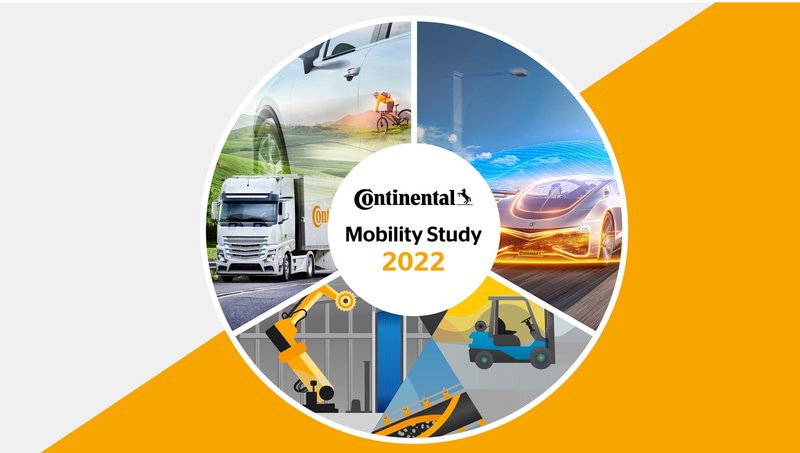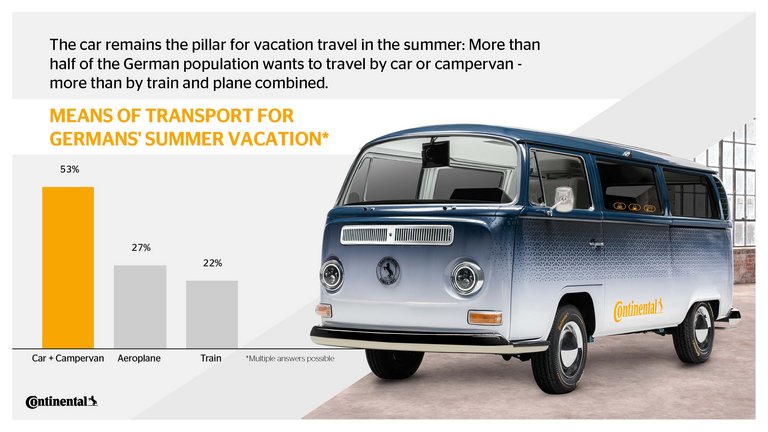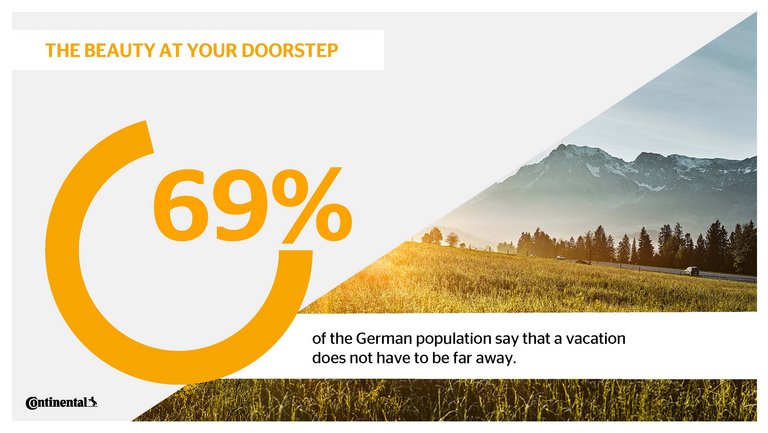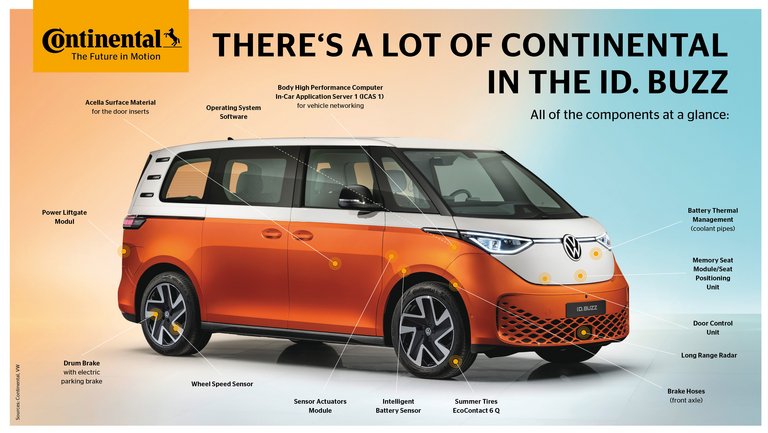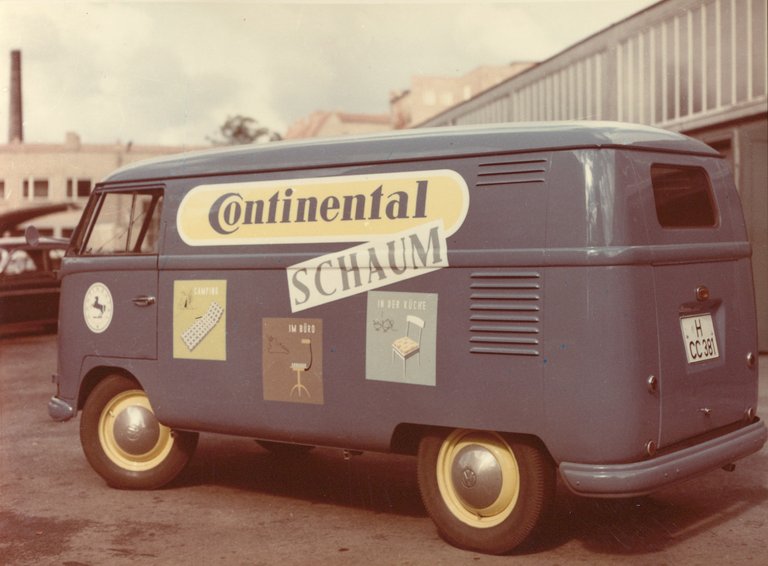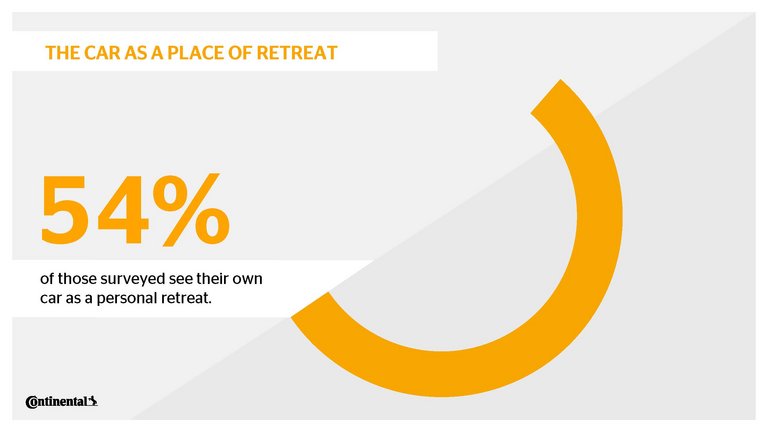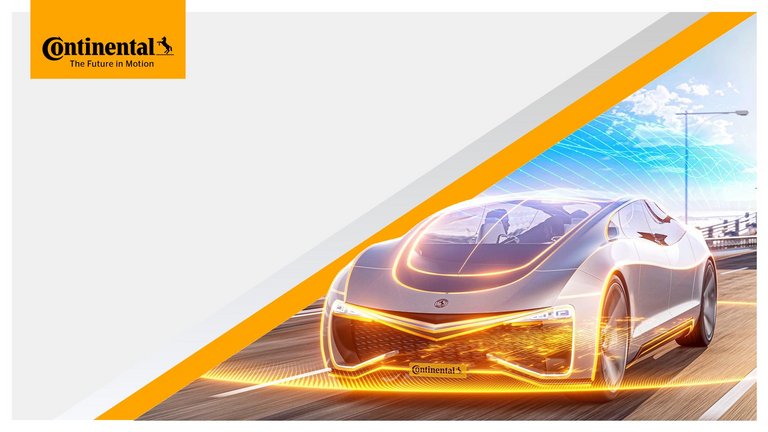Pandemic Reinforces Desire for Vacations on Four Wheels
- Latest Continental Mobility Study shows that people want to travel safely, conveniently and sustainably on vacations and in their leisure time
- The importance of own cars as a personal living space and place of retreat has greatly increased in recent times
- Publication of comprehensive study results planned for end of June 2022
- With its product portfolio and innovations, Continental delivers tailored solutions for the changing demands placed on mobility
- Company equips new Volkswagen ID. Buzz with a host of technologies for new, fully electric travel
- As a long-standing cooperation partner, Continental supplies central, in-house developed system components for virtually all areas of VW’s “cult van"
Hanover, June 21, 2022. Cars continue to gain in importance as a result of the pandemic and have become an integral part of many people’s travel and leisure-time habits. This is one of the key findings of the representative Continental Mobility Study 2022, which renowned market research company infas conducted worldwide on behalf of Continental. For this purpose, 1,000 German citizens between the ages of 18 and 70 were surveyed on their personal mobility needs in May 2022. According to the study, a majority of people in Germany regard cars as an essential part of their mobility and their personal living space. 54 percent of study respondents see their car as a place of personal refuge. More than half (53 percent) use a car or camper van/motor home for vacation trips. Against the backdrop of long waiting and check-in times at airports, canceled or heavily overcrowded public transportation, for example in the wake of the €9 monthly travel pass introduced in Germany to cushion rising fuel prices, the safety and comfort of their own car have become more important for 61 percent of German respondents when it comes to their vacation. The vast majority of those who reported having traveled during the pandemic asserted in the survey that they intend to continue using either their car (84 percent) or their camper van/motor home (60 percent) just as much or even more once the pandemic is over.
People want to travel safely, conveniently and with freedom
This is the overall trend revealed by the study. People want driving to be safer and more convenient, but also more sustainable – and they want it to fit in with their personal lifestyle. More than half of the survey participants (55 percent) have used their cars more frequently since the start of the pandemic.
Tailored solutions for changing mobility requirements
With its product portfolio and innovations, Continental delivers tailored solutions for the changing demands placed on mobility. The technology and system components that Continental is supplying for the new Volkswagen ID. Buzz are one example. The latest addition to VW’s famous line of microbuses sets new standards for an increasingly conscious lifestyle and mobility that is geared toward freedom while also focusing on sustainability.
As a close cooperation and development partner of Volkswagen for many years, Continental played a significant role in the design and development of the ID. Buzz. The technology company made important technological contributions in virtually all areas of the cult van – from the software and central computer architecture to the brakes and the sophisticated thermal management system for cooling the batteries, for example.
VW ID. Buzz: Continental supplies a host of technology and system components
Continental supplies a variety of high-performance components developed in-house for the ID. Buzz, including the In-Car Application Server 1 (ICAS 1). As a fully connected server, the ICAS 1 forms the central data hub in the vehicle and acts as an interface between the ID. Buzz and the digital world. Developed by Continental in close collaboration with its subsidiary Elekrobit, the central high-performance computer, which also supplies the operating system, allows new software functions and security updates to be installed in the vehicle at any time via a wireless connection. At the same time, the ICAS 1 offers range-optimized route planning and locates charging stations for the electric microbus, rendering “electric” traveling easier and more convenient.
Continental also developed a so-called plug-and-charge function for the ICAS 1, whereby the server’s software is able to authenticate the registered vehicle at supported charging stations when the charging cable is plugged in both at home and abroad and takes care of the charging process and payment on the basis of the stored charging contract.
In addition, Continental contributed its technology expertise to the thermal management system, tires and interior materials of the ID. Buzz. The vehicle is fitted with Continental’s EcoContact 6 Q summer tires ex works, which are mounted on 19-inch and 20-inch rims. Thanks to their particularly low rolling resistance, the tires save energy and give the ID. Buzz the longest possible range between charging cycles. ContiSeal technology is also especially suited to the requirements of the ID. Buzz. In the event of punctures caused by objects with a diameter of up to five millimeters, it reliably seals the tire tread, preventing around 90 percent of tire damage. For tire replacement and use during the cold season, Continental’s entire range of winter and all-year tires is also available.
Electric vehicles place particularly high demands on thermal management systems, with several cooling circuits needed for the batteries to ensure extended ranges and long battery life. Among other components, Continental supplies the battery sensors and coolant lines for the ID. Buzz. When selecting the combination of leather-free materials installed in the passenger compartment, such as Acella PVC artificial leather for the door inserts, Continental was able to draw on its experience with the AMBIENC3 concept vehicle, which was developed on the basis of a VW T2 microbus. As a surface specialist, the technology company is thus driving the change from purely functional vehicle interiors to trendy, mobile living and work spaces.
Continental and the microbus model line – an association dating back more than seven decades
Launched on the market in 1950, the very first model of the microbus model line, the T1, or more precisely the VW Type 2 T1, soon became a symbol of mobility and leisure culture in the years of the German economic miracle. Even then, Continental and its subsidiaries VDO and Teves, at the time independent companies, equipped the T1 with numerous components. These ranged from tires and parts of the instrumentation to brakes and smaller vehicle components. The development of the microbus from an analog bus to the digital ID. Buzz, which Continental has closely accompanied and contributed to over the years, impressively bears witness to its transformation from a mere supplier into a technology company.
Publication of full study results planned for end of June 2022
Continental plans to publish the latest mobility study with the full results from all six participating countries at the end of June 2022. For the 2022 edition, a total of 6,000 people aged 18 and over in Germany, France, Norway, the USA, Japan and China were surveyed in May 2022 about their personal mobility needs both in everyday life and in relation to travel and leisure. In each country, the respective sample is representative of the population; for China, it is representative of the urban population.
The aim of the Continental Mobility Study, now in its seventh edition, is to provide an international comparison of people’s attitudes toward current and future developments in mobility and their personal usage habits. The topics covered in this year’s mobility study include general mobility needs, attitudes toward sustainability aspects, particularly in terms of electric mobility, as well as economic and technological developments related to cars. Against the backdrop of the coronavirus pandemic, a particular focus of the study was on the role of cars as a possible sanctuary and place of retreat in connection with travel and vacations.
